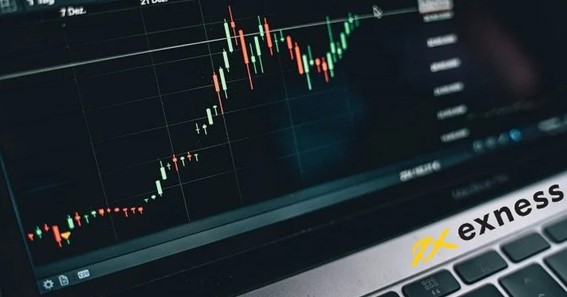Are you a novice trader looking to get your feet wet or a seasoned trader seeking advanced features and minimal spreads? If you’re reading this, it means you’re ready to dive into the exhilarating, sometimes overwhelming, universe of forex trading.
One of your first steps in this journey is choosing a broker and, more specifically, deciding on the account type that suits your needs best. This step can make or break your trading experience, affecting your strategy and potential profits.
Exness, a renowned international broker, offers a broad array of account types tailored to accommodate varying trader expertise levels, trading styles, and risk tolerance.
But how do you choose one?
How to Choose the Right Exness Account for Your Needs
When choosing Exness account types, there are important factors to keep in mind to ensure the best fit for your trading needs. You must consider your trading goals, experience level, and risk tolerance to begin with.
Trading Strategy
Evaluate your trading style and strategy. Are you a scalper looking for tight spreads and quick trades? Or are you a long-term trader who prefers lower commissions? Consider how each account type aligns with your preferred trading approach.
Financial Goals:
Are you aiming for steady and consistent profits or willing to take higher risks for potentially higher returns? Consider the account types that offer the features and conditions most conducive to achieving your goals.
Risk Tolerance:
Some accounts may offer higher leverage, which can amplify both profits and losses. Assess your risk tolerance level and choose an account that aligns with your risk appetite and financial capabilities.
Instrument Selection:
Consider the variety of instruments available for trading. If you have a specific interest in certain markets, such as cryptocurrencies or stocks, ensure that the account type you choose provides access to those instruments.
Account Requirements:
Take into account the minimum deposit requirement for each account type. Ensure that you are comfortable with the initial capital required to open and maintain the account.
Exness Trading Accounts Types
Before you start trading, you need to open an Exness account and select your preferred account type. Exness offers five distinct account types: Standard, Standard Cent, Raw Spread, Zero, and Pro.
1. Standard Account
The Standard account is a go-to choice for many, particularly those who are new to the forex market. Its flexibility and ease of use make it a comfortable starting point. Spreads start from as low as 0.3, and there’s no commission, which means more of your money goes directly into your trades.
The Standard account gives you access to a wide range of instruments, from forex and metals to cryptocurrencies, energies, stocks, and indices.
The maximum leverage is unlimited, making this account suitable for traders with varying risk appetites. Moreover, the minimum lot size is only 0.01, offering beginners plenty of opportunities to trade without significant risk.
Click here – What Is DMI Therapy?
2. Standard Cent Account
The Standard Cent account shares many similarities with the Standard account but with a few key differences. Although the spreads and lack of commission mirror the Standard account, the variety of tradable instruments is slightly reduced, limited to forex and metals.
Also, the maximum number of positions you can have at one time is capped at 1000. This account is suitable for traders who want to deal in smaller transaction sizes and those who prefer to stick to the most liquid markets.
3. Raw Spread Account
For more experienced traders, the Raw Spread account provides a powerful platform. It features the tightest spreads, starting from 0.0, but it does carry a commission of up to $3.50 on each side per lot.
This account type requires a minimum deposit of $500, which might be higher for some, but in return, you get access to a wider range of trading instruments. Metals, forex, stocks, cryptocurrencies, indices — all are at your disposal.
The maximum leverage is unlimited, offering opportunities for high returns, but remember, it also implies higher risk.
4. Zero Account
The Zero account, like the Raw Spread account, requires a $500 minimum deposit. It distinguishes itself by offering zero spread on the best 30 instruments, making it a desirable choice for traders who prioritize low-cost trades.
This, however, comes with a commission starting from $0.2. The available instruments are as varied as those for the Raw Spread and Pro accounts.
5. Pro Account
The Pro account is tailored for the professional trader. It requires a minimum deposit of $500 but brings with it numerous advantages. Spreads start from 0.1, and unlike the Raw Spread and Zero accounts, there’s no commission. Like the other professional accounts, the Pro account offers a vast range of trading instruments.
Why Exness is the Right Broker for You
The 2023 Exness statistics about traders reveal that the trading volume on the platform reached a remarkable $3.88 trillion, reflecting the immense opportunities and liquidity available to traders. With active traders on the Exness platform reaching 491,064, it’s easy to see why Exness is a preferred choice among traders worldwide.
But beyond the features, platforms, and instruments, there’s one critical factor that experienced traders look for: Security! So, is Exness a regulated broker, and are there security measures in place to protect user funds?
Having expanded globally, Exness is regulated by relevant bodies in the countries in which it operates: The UK, Kenya, Mauritius, Cyprus, South Africa, the British Virgin Islands, Seychelles, and Curacao.
In terms of security measures, Exness implements robust protocols to safeguard client funds and data. Advanced encryption protocols are employed to secure communication and protect sensitive information from unauthorized access.
